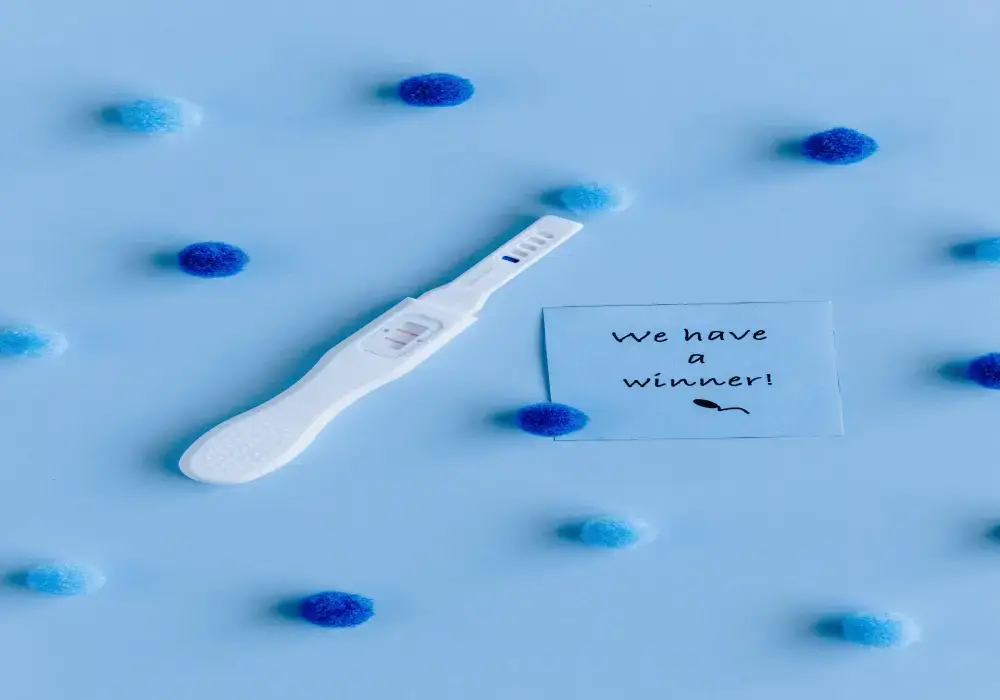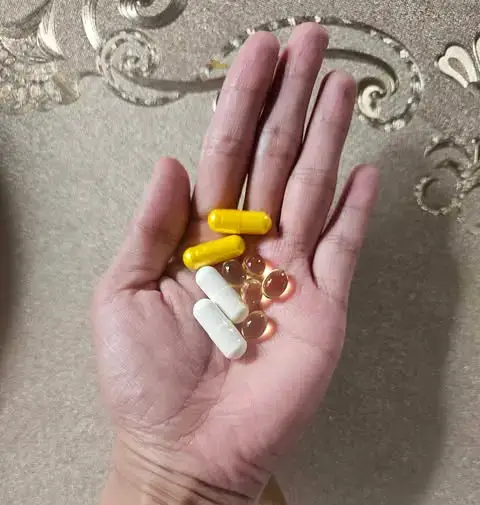The Role of Diet in Sperm Count
When it comes to sperm health, diet is one of the most important factors to consider. The foods you eat directly impact your sperm quality, count, and motility. So, if you’re on a fertility journey, making mindful changes to your diet can give you a real advantage. You might be surprised at how much of a difference simple changes can make. Let’s dive into why what you eat matters and which foods you should be incorporating into your diet.
Nutrient-Rich Foods for Healthy Sperm
A balanced diet rich in vitamins, minerals, and healthy fats can support sperm health in powerful ways. Certain nutrients play a crucial role in sperm production and quality. For example, Vitamin C, E, and zinc are known to protect sperm cells from oxidative stress and improve motility. You’ll find these nutrients in foods like oranges, strawberries, spinach, and nuts. Adding these antioxidant-rich foods to your meals is like giving your sperm a protective shield.
Magnesium and potassium, often found in foods like leafy greens, avocados, and bananas, also play a big part. These minerals help regulate the body’s overall balance, which includes optimizing sperm function. Plus, magnesium is known to support hormone production, and let’s face it—healthy hormones mean a healthier you and better sperm health.
Omega-3 fatty acids are another vital nutrient that helps maintain healthy sperm. These healthy fats are found in fatty fish like salmon and walnuts. They play a major role in reducing inflammation, which can contribute to sperm dysfunction. By including more omega-3-rich foods, you’re not just supporting your heart health—you’re also improving sperm motility and vitality.
Foods to Avoid for Better Sperm Health
While you may be thinking about what to add to your diet, it’s equally important to think about what to leave out. Some foods can negatively impact sperm health, particularly when consumed in excess. One big culprit? Processed foods. These tend to be packed with unhealthy fats, sugar, and preservatives that can create inflammation in your body, which isn’t ideal for sperm health.
Dairy products, particularly those high in fat, may also not be the best choice. Some studies have shown that excessive dairy intake could negatively affect sperm quality. If you’re concerned, try swapping whole milk or cheese for plant-based alternatives like almond milk or coconut yogurt. Not only does this change support your sperm, but it can also provide added health benefits.
Another factor to consider is alcohol. While an occasional drink is usually fine, excessive alcohol consumption can lower sperm count and impact motility. If you’re serious about improving your sperm health, consider limiting your alcohol intake. The same goes for caffeine; high levels of caffeine may be linked to lower sperm quality, so it’s worth reducing your intake if you’re looking to boost your chances.
Meal Planning for Sperm Health Success
Changing your diet doesn’t have to be complicated. You don’t need to overthink it or spend hours in the kitchen. Start by planning simple, nutritious meals that include a variety of sperm-friendly foods. Try to balance your plate with lean proteins, healthy fats, and fiber-packed veggies. For example, grilled chicken with a side of roasted vegetables and quinoa is a quick and healthy meal you can easily make at home.
Don’t forget to hydrate! Water plays a crucial role in maintaining overall health, and that includes supporting healthy sperm production. Make sure you’re drinking enough water throughout the day to keep your body and your sperm functioning at their best.
Meal prepping is also a great idea to stay on track. You can cook in batches and store meals for the week ahead. This will make it easier to stick to your healthy eating goals, especially on busy days when fast food is tempting. By planning ahead, you’re setting yourself up for success.
Supplements to Support Your Diet
While eating the right foods is crucial, sometimes your diet alone might not be enough to meet all your nutrient needs. That’s where supplements come in. Supplements like Vitamin D and zinc are commonly used to support sperm health, especially if you’re not getting enough from your diet. The good news is that there are some great options out there that can fill in the gaps.
For example, Fern-D is a supplement that provides high-quality Vitamin D, which plays an essential role in sperm function. Vitamin D helps regulate hormones and supports sperm motility. Similarly, Fern-Activ provides support with essential minerals and other ingredients that promote cellular health, including sperm cells.
MilkCa is another supplement that can support your sperm health journey. It’s rich in calcium, magnesium, and potassium, which are all essential for maintaining optimal body function. By pairing your diet with these targeted supplements, you’re giving your body the extra help it needs to boost sperm count and overall reproductive health.
Vitamins and Minerals You Can’t Ignore
When it comes to improving your sperm health, certain vitamins and minerals are absolute game-changers. They work behind the scenes, supporting your body’s natural functions and helping you reach your fertility goals. These vital nutrients can significantly impact sperm quality, motility, and overall reproductive health. Let’s take a look at the essential vitamins and minerals you shouldn’t ignore on your journey toward better sperm health.
Vitamin D: The Sunshine Vitamin
One of the most important vitamins for sperm health is Vitamin D, often called the “sunshine vitamin” because of how it’s produced when your skin is exposed to sunlight. However, many people don’t get enough of this vitamin, especially if they spend most of their time indoors. Vitamin D plays a crucial role in hormone regulation, and since healthy hormones are directly linked to healthy sperm, you’ll want to make sure you’re getting enough of it.
Not only does Vitamin D help regulate testosterone levels, but it also supports sperm motility. Low levels of Vitamin D have been associated with lower sperm quality and reduced fertility. So, what can you do to make sure you’re getting enough? You can eat foods rich in Vitamin D, like fatty fish (salmon, mackerel), eggs, and fortified cereals. But if you’re not getting enough from food or sunlight, a supplement like Fern-D could be just what you need. By adding a supplement to your routine, you’re giving your body the boost it needs to support healthy sperm.
Zinc: A Fertility Powerhouse
Zinc is another must-have mineral that plays a vital role in sperm health. This essential mineral is involved in everything from hormone production to DNA synthesis, making it critical for both sperm production and quality. Zinc also helps protect sperm from oxidative stress, which can damage the cells and lower motility. Essentially, zinc is like the guardian of your sperm, making sure they stay strong and healthy.
You can find zinc in a variety of foods, including oysters, pumpkin seeds, nuts, and beans. But, if you’re not getting enough from your diet, consider taking a supplement like Fern-Activ. It’s a great way to ensure your body is getting the zinc it needs to support healthy sperm production. The power of zinc shouldn’t be underestimated—without it, sperm can struggle to grow and develop properly, which can affect your chances of conception.
B Vitamins: Key to Healthy Sperm and Fertility
B vitamins, including B1, B2, B6, and B12, play a crucial role in supporting sperm health and fertility. These vitamins are involved in energy production, hormone regulation, and the development of healthy sperm cells. When your body has adequate levels of these vitamins, your sperm can be more resilient and have better motility, improving your chances of conception.
The good news? You can get a powerful boost of these essential B vitamins through Fern-Activ. Packed with B1, B2, B6, and B12, Fern-Activ supports your reproductive health by helping to maintain optimal vitamin levels that might be missing from your regular diet. B1 (thiamine) helps convert food into energy, B2 (riboflavin) fights oxidative stress, B6 (pyridoxine) regulates hormone levels, and B12 (cobalamin) ensures healthy sperm development. All these factors come together to promote healthy sperm that are ready to do their job when you’re trying to conceive.
While B vitamins are found in foods like whole grains, eggs, and leafy greens, it can sometimes be challenging to get enough from food alone, especially if your diet is lacking in these key nutrients. That’s where Fern-Activ can fill in the gap. With its carefully formulated blend of B vitamins, Fern-Activ helps support your body’s natural functions and ensures your sperm are well-equipped for optimal fertility.
:The Unsung Heroes : Magnesium & Potassium:
Magnesium and potassium are two minerals that often fly under the radar, but they are just as crucial for sperm health. Magnesium helps regulate your body’s overall function, including muscle and nerve health. When your body is in balance, your sperm are more likely to thrive. Magnesium also supports hormone production and helps reduce stress, which can be a big factor in fertility.
Potassium, on the other hand, is essential for proper fluid balance in the body, which impacts the health of your sperm cells. Both of these minerals are vital for maintaining a healthy reproductive system. You can get magnesium from leafy greens, nuts, and seeds, while potassium can be found in bananas, avocados, and potatoes. But if you’re not getting enough from your food, supplements like MilkCa, which contains magnesium and potassium, can help fill in the gaps and provide that extra support.
Vitamin E: Protecting Sperm from Damage
Vitamin E is another key player in your sperm health. It acts as a powerful antioxidant, protecting sperm from damage caused by oxidative stress. By reducing free radicals in the body, Vitamin E helps maintain healthy sperm and improves motility. Plus, it supports the overall health of your cells, so it’s not just your sperm that benefit—it’s your whole body!
You can find Vitamin E in a variety of foods, such as almonds, spinach, and sunflower seeds. But if you’re looking to boost your Vitamin E intake, supplements can make it easier to get the right amount. A supplement designed to support sperm health can provide you with the exact dose needed to keep your sperm in tip-top shape.

The Power Trio: A Fertility Game-Changer
When it comes to boosting fertility, sometimes it’s all about having the right support system. Think of it like assembling the perfect team to achieve a common goal. The Power Trio—Fern-D, Fern-Activ, and MilkCa—work together in harmony to support sperm health and improve your chances of conception. These three supplements provide a wide range of nutrients that play a vital role in optimizing fertility, making them an essential part of your reproductive health routine.
Fern-D: The Vitamin D Boost You Need
Let’s kick things off with Fern-D, a supplement packed with Vitamin D, a nutrient that’s often overlooked but essential for reproductive health. Low Vitamin D levels have been linked to poor sperm motility and reduced chances of successful conception. This is where Fern-D steps in, providing the much-needed Vitamin D to keep your sperm strong and healthy.
Vitamin D is not only critical for sperm function but also plays a key role in hormone regulation. Balanced hormone levels can have a significant impact on your fertility, helping to create an optimal environment for conception. Taking Fern-D daily is an easy way to fill in the gaps, especially if you’re not getting enough sunlight or Vitamin D-rich foods in your diet.
Fern-Activ: The B Vitamin Boost for Sperm Vitality
Next in the Power Trio is Fern-Activ, a supplement that delivers a potent combination of B vitamins—B1, B2, B6, and B12—all of which are essential for maintaining optimal sperm health. While Fern-Activ doesn’t contain antioxidants in the traditional sense, its role in combating oxidative stress is just as important.
B vitamins are known to support energy production and hormone regulation, both of which contribute to healthy sperm. They also play a role in reducing oxidative damage in the body. Oxidative stress from free radicals can harm sperm cells, reducing their motility and overall vitality. With the help of Fern-Activ, your sperm have a better chance of staying strong, resilient, and ready for fertilization.
MilkCa: The Mineral Boost for Sperm Resilience
Last but certainly not least, there’s MilkCa, a supplement that provides vital minerals like magnesium, calcium, and potassium. These minerals are crucial for sperm motility, hormonal balance, and overall reproductive health. Magnesium, in particular, plays a pivotal role in regulating calcium levels within sperm, enhancing their movement and energy.
Without sufficient minerals like magnesium and potassium, sperm can become sluggish and less effective in their journey to fertilize an egg. By incorporating MilkCa into your routine, you’re helping to create the ideal environment for sperm to thrive and ensuring they have the resilience needed to succeed.
Why The Power Trio Works
You might be asking, “Why do these three supplements work so well together?” The answer is simple: they complement each other perfectly. Fern-D provides essential Vitamin D to support sperm function, Fern-Activ delivers B vitamins to improve energy production and reduce oxidative stress, and MilkCa supplies the minerals needed for sperm resilience. Together, they form a powerful support system for your fertility, giving you the best possible chance of success.
Fertility is all about balance, and it’s not just one nutrient that makes the difference. It’s the combination of these key nutrients that work together synergistically to optimize sperm health and increase your chances of conception. The Power Trio fills in the gaps in your diet, helping to ensure your body is receiving the right support at every step of your fertility journey.
How to Use The Power Trio
Incorporating the Power Trio into your daily routine is easy and convenient. Start by taking two capsule of Fern-Activ in the morning, followed by your two Fern D after meal, and finish with two MilkCa before sleep. This simple, daily regimen ensures that your body receives all the nutrients it needs to support fertility, without any added hassle.
Remember, while supplements are a crucial part of the equation, they’re just one piece of the puzzle. Pairing the Power Trio with a balanced diet, regular exercise, and healthy lifestyle choices can make a huge difference in your fertility journey.
Everyday Habits to Improve Sperm Quality
Improving sperm quality doesn’t have to involve drastic life changes or expensive treatments. Often, it’s the small everyday habits that make the biggest difference. From what you eat to how you manage stress, your daily routine can have a significant impact on your reproductive health. Let’s explore some practical and easy-to-follow tips to boost sperm quality and set yourself up for success on your fertility journey.
Eat Smart: Nourish Your Body, Nourish Your Sperm
Your sperm quality depends heavily on what’s on your plate. A nutrient-rich diet full of whole foods can work wonders for fertility. Try incorporating more fruits, vegetables, lean proteins, and whole grains into your meals. These are packed with antioxidants, vitamins, and minerals essential for healthy sperm production.
For example, foods like spinach and broccoli are rich in folate, while eggs, fish, and poultry provide the much-needed B vitamins. These nutrients support sperm development and ensure your swimmers are in top-notch condition. And don’t forget healthy fats! Omega-3 fatty acids, found in salmon, walnuts, and flaxseeds, can help improve sperm motility and count.
If you’re worried about nutritional gaps, supplements like Fern-Activ can give you an extra boost. Its B vitamins help with energy production and hormone regulation, both vital for sperm health. Pairing a healthy diet with the right supplements can supercharge your efforts.
Move Your Body: Stay Active, Stay Fertile
You don’t need to hit the gym every day to improve sperm quality, but staying active does make a difference. Regular exercise boosts testosterone levels, improves blood circulation, and helps maintain a healthy weight—all of which play a role in fertility.
Consider simple activities like a brisk walk, cycling, or yoga to stay active. Not only will this benefit your sperm, but it will also reduce stress, improve mood, and give you an overall energy boost. Aim for at least 30 minutes of moderate activity most days of the week.
However, remember that overdoing it with intense exercise can sometimes have the opposite effect. High-intensity workouts may temporarily lower testosterone levels and negatively impact sperm production. Balance is key—find a routine that keeps you fit without pushing your body to the limit.
Ditch Unhealthy Habits: Protect Your Swimmers
Certain lifestyle habits can harm sperm quality, so it’s time to say goodbye to anything that might be holding you back. Smoking, for instance, is a big no-no when it comes to fertility. Cigarettes contain toxins that damage sperm DNA and lower both count and motility. If you’re a smoker, quitting is one of the best things you can do for your reproductive health.
Alcohol is another culprit. While the occasional drink likely won’t hurt, excessive alcohol consumption can reduce testosterone levels and impact sperm production. Stick to moderation—one or two drinks a week is a safe bet.
Finally, watch out for excessive heat. Hot tubs, saunas, and even tight underwear can raise the temperature around your testicles, potentially harming sperm production. Switch to looser clothing and avoid prolonged heat exposure to keep things cool down there.
Stress Less: A Calm Mind Means Healthier Sperm
Stress is more than just a mental challenge—it can also mess with your sperm health. When you’re constantly stressed, your body produces more cortisol, a hormone that suppresses testosterone production. This imbalance can lower sperm count and motility over time.
The good news? There are plenty of ways to manage stress effectively. Try incorporating mindfulness techniques into your day, such as meditation, deep breathing, or journaling. Even setting aside 10 minutes daily for some “me time” can make a huge difference.
Spending time with loved ones, engaging in hobbies, or simply taking a break from your busy schedule can also help. Remember, your mental health and physical health go hand in hand, so prioritize both to maximize your fertility potential.
Stay Hydrated and Rest Up
Never underestimate the power of hydration and a good night’s sleep—they’re like the unsung heroes of sperm health! Staying hydrated keeps your entire body running smoothly, including the processes involved in sperm production. Aim for at least 8 glasses of water a day to stay refreshed and keep your reproductive system in top shape. If plain water feels boring, try infusing it with a splash of lemon or a few cucumber slices for a refreshing twist.
Now, let’s talk about sleep—a cornerstone of fertility that often gets overlooked. Skimping on sleep can throw off your hormone levels, reduce testosterone production, and ultimately impact sperm quality. The fix? Make quality sleep a priority. Try to get 7-9 hours of shut-eye every night to allow your body to recharge.
Building a solid bedtime routine can make all the difference. Turn off your screens an hour before bed to let your brain unwind, and stick to a consistent sleep schedule—even on weekends. Small tweaks like these can help you rest better, giving your body the time it needs to focus on sperm production. Rest well, and let your body work its magic!



